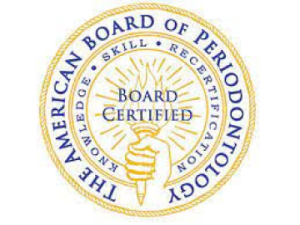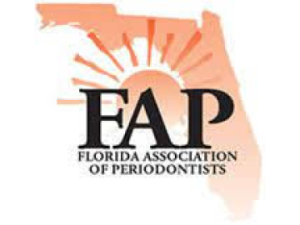Key Highlights
- Dental anxiety is a common problem that affects many people, but there are proven strategies to conquer it.
- Relaxation techniques such as deep breathing exercises, meditation, and visualization can help manage dental anxiety.
- Communicating your fears with your dentist and establishing open communication can make dental visits more comfortable.
- Distraction techniques such as listening to music or podcasts can help alleviate anxiety during dental appointments.
- Technological advances like virtual reality and pain-free dental techniques have been developed to reduce dental anxiety.
- Building a positive relationship with your dentist and choosing the right dentist for your needs is crucial in overcoming dental anxiety.
Introduction
Dental anxiety affects a significant portion of the population, causing unease and fear when it comes to dental visits. This anxiety can prevent people from seeking necessary dental care, leading to poor oral health. However, there are proven strategies that can help conquer dental anxiety and make dental visits a more comfortable experience. By understanding dental anxiety, recognizing common triggers, and employing relaxation techniques, individuals can overcome their fears and maintain good oral health.
Understanding Dental Anxiety
Dental anxiety, also known as dental phobia, is an intense fear or anxiety associated with dental visits. It is more than just feeling nervous or uneasy; it is a genuine fear that can lead to avoidance of dental appointments. This fear can be triggered by past traumatic experiences, fear of pain, fear of losing control, or a general anxiety disorder. Dental anxiety is an irrational fear that can significantly impact a person’s oral health if left unaddressed.
The Common Triggers of Dental Anxiety
Several factors can contribute to dental anxiety. One of the primary triggers is the fear of dental procedures. The thought of undergoing treatment, such as fillings, extractions, or root canals, can cause severe anxiety for individuals with dental anxiety. Negative thoughts and beliefs about dental visits, such as associating them with pain or discomfort, can also contribute to anxiety. Additionally, a fear of pain can be a significant trigger, as individuals may anticipate or imagine experiencing pain during dental procedures. Understanding and addressing these triggers is essential in overcoming dental anxiety.
The Impact of Dental Anxiety on Oral Health
Dental anxiety can have a significant impact on a person’s oral health. When individuals with dental anxiety avoid or delay dental visits, they are more likely to develop oral health issues such as gum disease, dental pain, and cavities. Additionally, untreated dental problems can lead to more severe health problems, including heart disease and diabetes. It is crucial to address dental anxiety and seek regular dental care to maintain good oral health and prevent these complications.
Initial Steps to Overcome Dental Anxiety
Overcoming dental anxiety starts with recognizing and acknowledging your fears. Understanding that dental anxiety is common and that there are strategies to cope with it can be empowering. Communicating your fears and concerns with your dentist is an essential step in overcoming dental anxiety. Establishing open communication allows your dentist to tailor treatment to your needs and provide reassurance throughout the process. Additionally, learning and practicing coping mechanisms, such as relaxation techniques, can help manage anxiety during dental visits.
Recognizing Your Fear: The First Step to Overcoming It
The first step in conquering dental anxiety is recognizing and acknowledging your fear. Understanding the level of your dental anxiety and how it affects your general health can help you take control of your anxiety. It’s important to remember that dental anxiety is an irrational fear and may not reflect the actual experience of dental treatment. By recognizing your fear and understanding that it is not grounded in reality, you can start to challenge and overcome it.
Communicating Your Fears with Your Dentist
Open communication with your dentist is crucial in managing dental anxiety. Dentists are experienced in treating anxious patients and can provide reassurance and support throughout the treatment process. By discussing your fears and concerns with your dentist, they can adjust their approach to accommodate your needs. Dentists may offer additional explanations, breaks during treatment, or other measures to make you feel more comfortable. Building a rapport with your dentist and establishing trust can go a long way in alleviating dental anxiety.
Techniques to Manage Anxiety Before Your Dental Visit
Various techniques can help manage anxiety before your dental visit. Relaxation techniques such as deep breathing exercises and muscle relaxation can help calm the mind and body. These techniques involve taking slow, deep breaths and consciously relaxing different muscle groups. By practicing these techniques before your appointment, you can reduce anxiety and promote a sense of calmness. Incorporating these techniques into your daily routine can also help manage anxiety in other areas of your life.
Deep Breathing Exercises for Relaxation
Deep breathing exercises are a simple yet effective way to relax the body and mind. By taking slow, deep breaths, you can activate the body’s relaxation response, which helps lower blood pressure and reduce anxiety. To practice deep breathing, close your eyes and inhale deeply through your nose, filling your lungs with air. Hold your breath for a few seconds, and then exhale slowly through your mouth. Repeat this several times, focusing on your breath and allowing yourself to relax with each exhale. Deep breathing exercises can be done anywhere and anytime, making them a convenient tool for managing dental anxiety and promoting overall relaxation.
Visualization Strategies to Ease Anxiety
Visualization is a powerful technique that can help ease anxiety and create a sense of calmness. By visualizing positive and relaxing images, you can shift your focus away from dental anxiety and promote a more relaxed state of mind. Before your dental appointment, close your eyes and imagine yourself in a peaceful and serene environment. Picture yourself feeling calm and at ease in the dental chair. By incorporating visualization into your relaxation routine, you can train your mind to associate dental visits with positive and calming experiences.
The Role of Meditation and Mindfulness
Meditation and mindfulness techniques can be beneficial in managing dental anxiety. These practices involve focusing your attention on the present moment, allowing you to cultivate a sense of calm and reduce stress. By incorporating meditation into your daily routine, you can develop a greater awareness of your thoughts and emotions, allowing you to manage them more effectively. Mindfulness techniques can also be applied during dental visits, helping you stay present and calm. By practicing meditation and mindfulness, you can improve your overall mental health and well-being, which can contribute to a more positive dental experience.
During the Appointment: Strategies to Stay Calm
Staying calm during a dental appointment is crucial in managing dental anxiety. There are several strategies you can employ to stay calm and relaxed. Distraction techniques, such as listening to music or podcasts, can divert your attention away from dental procedures and help alleviate anxiety. Additionally, discussing sedation options with your dentist can provide an extra level of comfort during the appointment. Sedation options range from nitrous oxide (laughing gas) to conscious sedation or general anesthesia, depending on the level of anxiety and the complexity of the procedure. Working with your dentist to determine the most suitable sedation option for you can help create a more comfortable experience.
The Power of Distraction: Music, Podcasts, and More
Using distraction techniques can be an effective way to alleviate dental anxiety. Bringing headphones and listening to music or podcasts during your dental visit can help divert your attention away from the dental procedure and create a more relaxed atmosphere. Music has a soothing effect and can help calm your mind and body. Listening to your favorite tunes or engaging in an interesting podcast can also provide a sense of familiarity and comfort. By incorporating these distractions into your dental visits, you can make the experience more enjoyable and less anxiety-inducing.
Understanding Sedation Dentistry Options
Sedation dentistry offers various options to help manage dental anxiety. Nitrous oxide, also known as laughing gas, is a common sedation option that induces a state of relaxation and eases anxiety. Conscious sedation involves taking an oral sedative before the appointment to achieve a relaxed state while remaining conscious and responsive. General anesthesia, typically administered in a hospital setting, involves being fully asleep or unconscious during the dental procedure. The choice of sedation option depends on the level of anxiety and the complexity of the procedure. Discussing sedation dentistry options with your dentist can help determine the most suitable choice for you to ensure a comfortable dental experience.
The Importance of Breaks During Treatment
Taking breaks during dental treatment is essential in managing dental anxiety. Dentists understand the importance of patient comfort and may offer breaks during procedures to allow patients to relax and regain their composure. By communicating with your dentist and expressing your need for breaks, you can ensure that the treatment is carried out at a pace that feels comfortable for you. Taking breaks can help alleviate anxiety and provide a sense of control during the dental appointment. Dentists prioritize patient care and are committed to creating a positive and comfortable experience for individuals with dental anxiety.
Technological Advances Aiding in Anxiety Reduction
Technological advances in dentistry have been developed to aid in anxiety reduction. These advancements aim to make dental procedures more comfortable and pain-free. For example, virtual reality technology can be used as a distraction technique during dental visits, allowing patients to immerse themselves in a virtual environment and divert their attention away from the procedure. Additionally, pain-free dentistry techniques, such as advanced dental anesthesia and minimally invasive procedures, help alleviate anxiety associated with dental pain. By embracing these technological advances, dentists can provide a more anxiety-free and enjoyable dental experience for their patients.
Virtual Reality Distractions in Dental Care
Virtual reality (VR) technology has emerged as a promising tool in alleviating dental anxiety. By immersing patients in a virtual environment, VR distracts them from the dental procedure and creates a more relaxing experience. Patients can choose from various virtual environments, such as a serene beach or a peaceful garden, to transport themselves mentally to a calming place. The immersive nature of VR allows patients to focus their attention on the virtual environment, effectively diverting their attention away from dental anxiety. Virtual reality distractions have shown promising results in reducing anxiety and improving patient comfort during dental care.
Advances in Pain-Free Dental Techniques
Advancements in dental technology and techniques have made dental procedures more pain-free and comfortable. Dental anesthesia has become more advanced, allowing dentists to administer local anesthesia that effectively numbs the treatment area, ensuring a pain-free experience. Additionally, dentists now utilize minimally invasive techniques that involve less discomfort and faster recovery times. These advancements in pain-free dentistry have greatly contributed to reducing dental anxiety and providing a more pleasant dental care experience. By staying up-to-date with the latest techniques, dentists can help alleviate patient fears and ensure pain-free dental care.
Building a Positive Relationship with Your Dentist
Building a positive relationship with your dentist is crucial in overcoming dental anxiety. Finding the right dentist who understands your needs and creates a comfortable environment is essential. Trust plays a significant role in the dentist-patient relationship. When you trust your dentist and feel confident in their abilities, it can help alleviate anxiety and create a more positive dental experience. Openly communicating your fears and concerns with your dentist and establishing a rapport can further strengthen the dentist-patient relationship, fostering a sense of comfort and ease during dental visits.
Choosing the Right Dentist for Your Needs
Choosing the right dentist is crucial for individuals with dental phobia. Look for a dentist who specializes in treating anxious patients and has experience in managing dental anxiety. Research different dental practices and read patient reviews to find a dentist who has a reputation for providing a comfortable and anxiety-free experience. Consider scheduling an initial consultation to get a sense of the dentist’s approach and to discuss your specific concerns. Finding the right dentist who understands your needs and makes you feel at ease can make a significant difference in overcoming dental anxiety and promoting good oral health.
Establishing Trust and Open Communication
Establishing trust and open communication with your dentist is essential in overcoming dental anxiety. When you feel comfortable discussing your fears and concerns with your dentist, it creates a safe space for open dialogue. Your dentist can provide reassurance, address your anxieties, and tailor treatment to your needs. Trusting your dentist’s expertise and knowing that they have your best interests at heart can significantly alleviate anxiety. By fostering a relationship built on trust and open communication, you can feel more confident in seeking dental care and managing dental anxiety.
Long-Term Strategies to Keep Anxiety at Bay
In addition to immediate strategies for managing dental anxiety, there are long-term approaches to keep anxiety at bay. Regular dental visits play a vital role in maintaining good oral health and preventing dental problems. By scheduling and attending regular check-ups, you can develop a sense of familiarity with the dental environment and build trust with your dentist. Additionally, making positive lifestyle changes, such as practicing good oral hygiene and adopting stress-reducing techniques, can contribute to overall well-being and reduce dental anxiety in the long run.
Regular Dental Visits: The Role They Play
Regular dental visits are crucial for maintaining good oral health and preventing dental problems. By attending regular check-ups, dental professionals can detect and treat issues early, preventing them from progressing into more serious conditions. Dental hygienists play a vital role in cleaning and maintaining dental health, removing plaque and tartar buildup that can lead to gum disease. By establishing a routine of regular dental visits, individuals can develop a sense of familiarity and comfort with the dental environment, reducing anxiety and promoting a positive dental experience. Looking forward to the next dental visit can be an empowering step in conquering dental anxiety.
Lifestyle Changes to Support Oral Health and Reduce Anxiety
Making positive lifestyle changes can support not only oral health but also reduce anxiety associated with dental visits. Practicing good oral hygiene, including regular brushing and flossing, helps maintain a healthy mouth and reduces the risk of dental problems. Adopting stress-reducing techniques, such as exercise, mindfulness, and adequate sleep, can contribute to overall well-being and reduce anxiety levels. Taking care of your general health through a balanced diet and regular exercise can also have a positive impact on oral health. By prioritizing self-care and making lifestyle changes that promote both oral and general health, individuals can reduce anxiety and maintain a positive attitude towards dental visits.
Conclusion
Dental anxiety should never stand in the way of your oral health. By recognizing your fears, communicating openly with your dentist, and practicing relaxation techniques like deep breathing and visualization, you can take proactive steps to conquer dental anxiety. During your visit, distractions such as music or podcasts can help, and advancements like virtual reality and pain-free techniques offer additional support. Establishing trust and open communication with your dentist is essential for a positive experience. Remember, regular visits and lifestyle changes play a crucial role in maintaining oral health and reducing anxiety in the long run. Don’t let fear hold you back from a healthy smile!
Frequently Asked Questions
How Can I Prepare for a Stress-Free Dental Visit?
Preparing for a stress-free dental visit involves several steps. Communicate your fears and concerns with your dentist, practice relaxation techniques before the appointment, and familiarize yourself with the dental office environment. These preparations can help alleviate anxiety and create a more comfortable experience.
What Are Some Signs That I Have Dental Anxiety?
Some signs that you may have dental anxiety include feeling nervous or uneasy before dental appointments, avoiding or postponing dental visits, and experiencing heightened anxiety or panic during dental procedures. Severe dental anxiety may manifest in more intense symptoms such as heart palpitations and extreme sweating.












